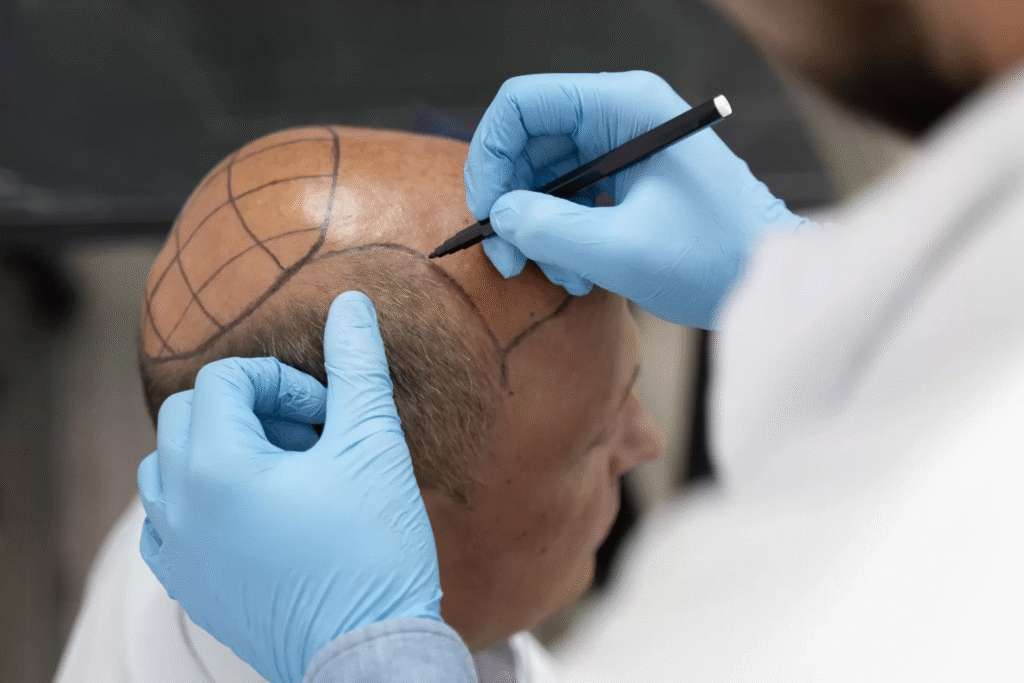Hair loss affects millions of people globally and can significantly impact self-confidence and overall appearance. Whether it’s due to genetics, hormonal changes, medical conditions, or lifestyle factors, hair thinning and baldness often prompt individuals to seek long-term solutions. One of the most effective and permanent treatments available today is Hair Transplant in Dubai, known for its modern techniques and high success rates. Identifying the right candidate for a hair transplant is essential to ensure optimal results. Not everyone experiencing hair loss is automatically eligible, as the procedure depends on several health, hair, and lifestyle factors.
Key Criteria for a Good Hair Transplant Candidate
Age and Maturity of Hair Loss
One of the first things to consider is age. While hair transplants can be performed on younger individuals, the ideal candidates are usually over the age of 25. This is because hair loss patterns are more stable after this age, which makes planning the transplant more accurate and successful.
Stable Hair Loss Pattern
People with a stable pattern of hair loss are typically better candidates. Unpredictable or progressive hair loss can result in unnatural-looking results post-surgery, as transplanted hair may remain while surrounding native hair continues to fall out.
Sufficient Donor Hair
An essential requirement for a successful hair transplant is the availability of healthy donor hair—usually from the back or sides of the scalp. If the donor area is too sparse or weak, the outcome may not be desirable.
Suitable vs. Unsuitable Candidates
| Suitable Candidates | Unsuitable Candidates |
|---|---|
| Age 25 or above | Below 20 with unpredictable hair loss |
| Stable hair loss pattern | Actively progressing hair loss |
| Good donor hair density | Poor or insufficient donor hair |
| Non-smokers or light smokers | Heavy smokers with poor healing ability |
| Realistic expectations | Unrealistic expectations of full coverage |
Health Conditions That Influence Eligibility
Overall Health Matters
Ideal candidates should be in generally good health. Chronic illnesses like uncontrolled diabetes, blood clotting disorders, or autoimmune diseases can interfere with healing and hair growth. A full medical evaluation is typically required before proceeding.
Scalp Health
The condition of the scalp plays a critical role. A healthy, scar-free scalp provides the best environment for transplanted follicles to grow. Individuals with scarring alopecia or scalp infections may need pre-treatment before becoming eligible.
Hair Characteristics That Support Success
Hair Texture and Color
Thicker hair provides better coverage and often leads to a more satisfying aesthetic result. Similarly, when the hair color closely matches the scalp color, it creates a fuller appearance. These characteristics are considered during assessment.
Curl Pattern
Curly or wavy hair can provide more coverage than straight hair, making it easier to achieve dense-looking results with fewer grafts. Therefore, curl pattern also plays a role in determining candidacy.
Psychological Readiness and Expectations
Emotional Preparedness
Undergoing a hair transplant is not just a physical decision; it’s a psychological one. Candidates should be mentally and emotionally ready for the process, understanding that results take time—often several months—and require patience.
Realistic Goals
A good candidate understands that a hair transplant improves appearance but may not restore a youthful, pre-hair loss state completely. Managing expectations is key to overall satisfaction with the outcome.
Gender and Hair Transplants
Men vs. Women Candidates
Men typically experience male-pattern baldness, which follows a predictable pattern and is more easily treatable with transplants. Women may face diffuse hair loss, which makes finding a suitable donor area more challenging but not impossible. Proper diagnosis is crucial.
Genetic Factors
If hair loss runs in the family, it may indicate a strong genetic component. Genetic testing and family history analysis help determine the likelihood of further hair loss and support the long-term success of the transplant.
When to Avoid Hair Transplant
Some individuals may need to delay or avoid hair transplantation:
-
Active hair shedding disorders (e.g., telogen effluvium)
-
Unstable health conditions
-
Unrealistic expectations
-
Insufficient donor supply
-
Poor scalp health
These concerns can often be addressed with alternative treatments or lifestyle modifications before becoming eligible.
FAQs
1. Can I get a hair transplant if I’m still losing hair?
Not ideally. It’s better to wait until hair loss stabilizes, as continued shedding can affect results.
2. Is there a minimum age for hair transplant?
Yes, most professionals recommend waiting until at least 25 years old to ensure a stable hair loss pattern.
3. Can women undergo hair transplants?
Yes, but the suitability depends on the cause and pattern of hair loss. Women with localized thinning may be good candidates.
4. What happens if my donor area is weak?
If your donor area lacks density, alternatives like platelet-rich plasma (PRP) therapy or hair growth medications might be suggested before a transplant.
5. How do I know if I’m a good candidate?
A full medical and hair loss assessment, including scalp analysis and health screening, is required to determine your candidacy.
Final Thoughts
A hair transplant is a long-term solution for restoring hair and confidence. However, not everyone is an ideal candidate. Factors like age, health, hair type, donor availability, and lifestyle significantly impact the success and satisfaction of the procedure. Those considering a Hair Transplant should begin with a comprehensive consultation to evaluate all aspects of candidacy. With proper assessment and realistic expectations, many individuals find life-changing benefits from this advanced hair restoration method.











































